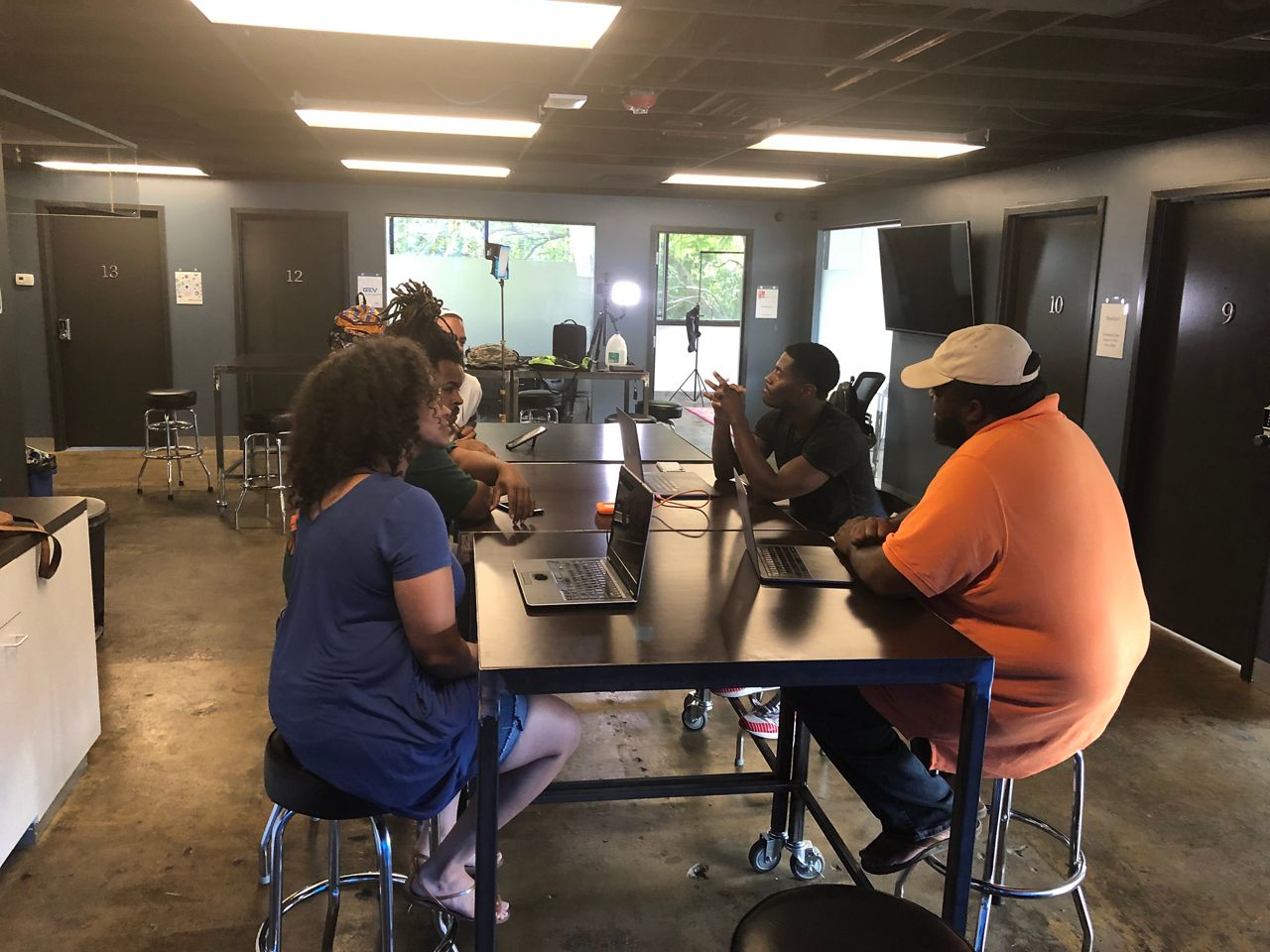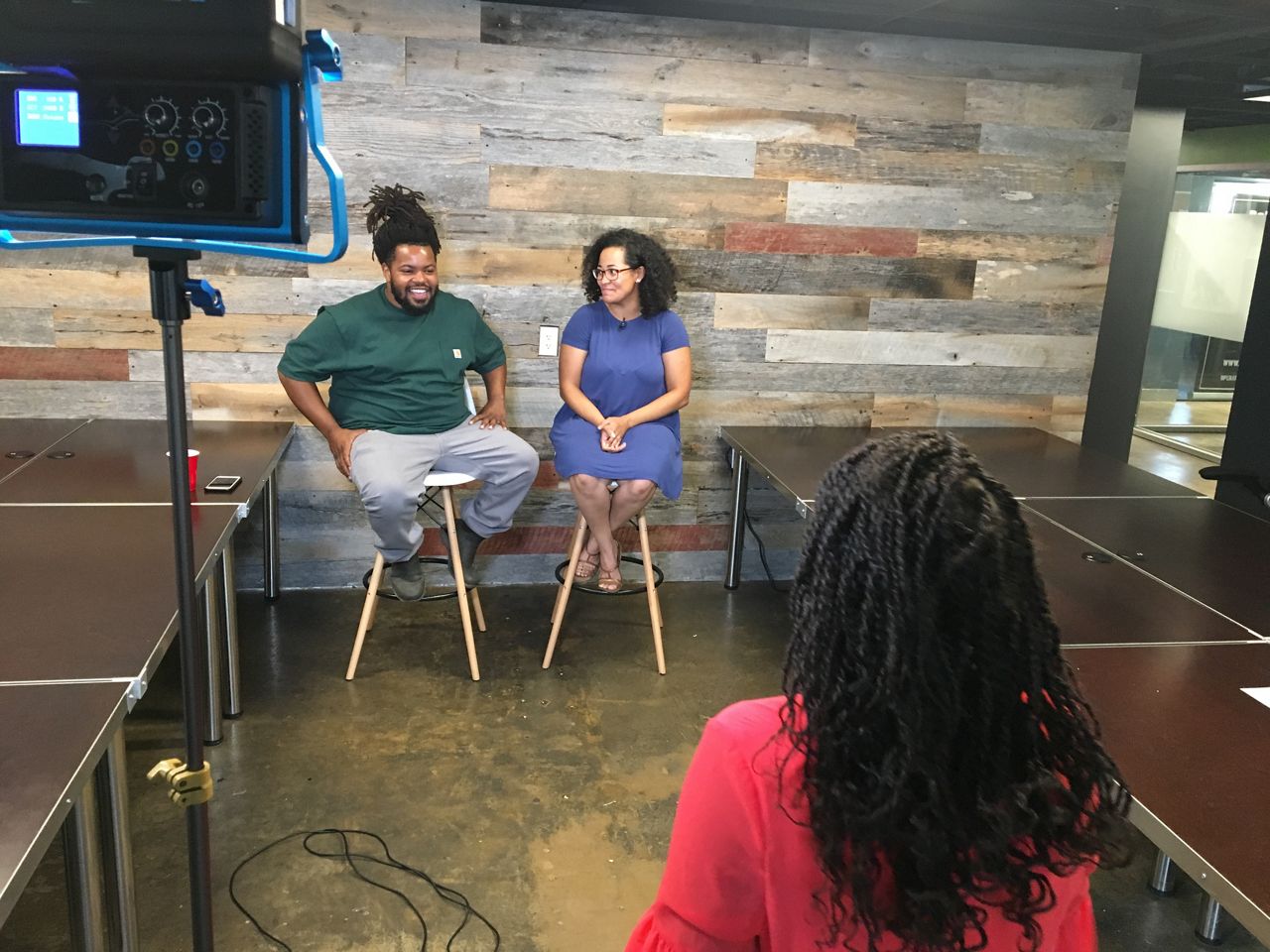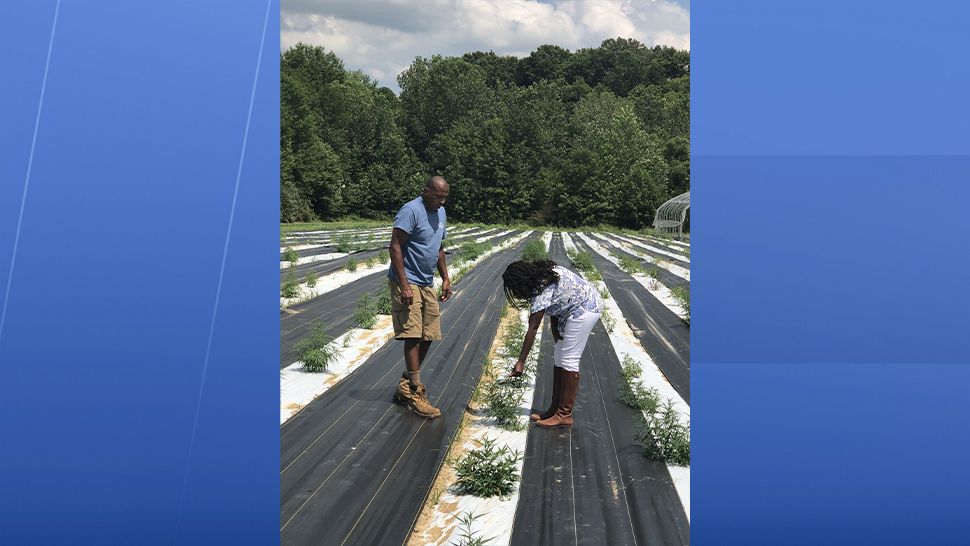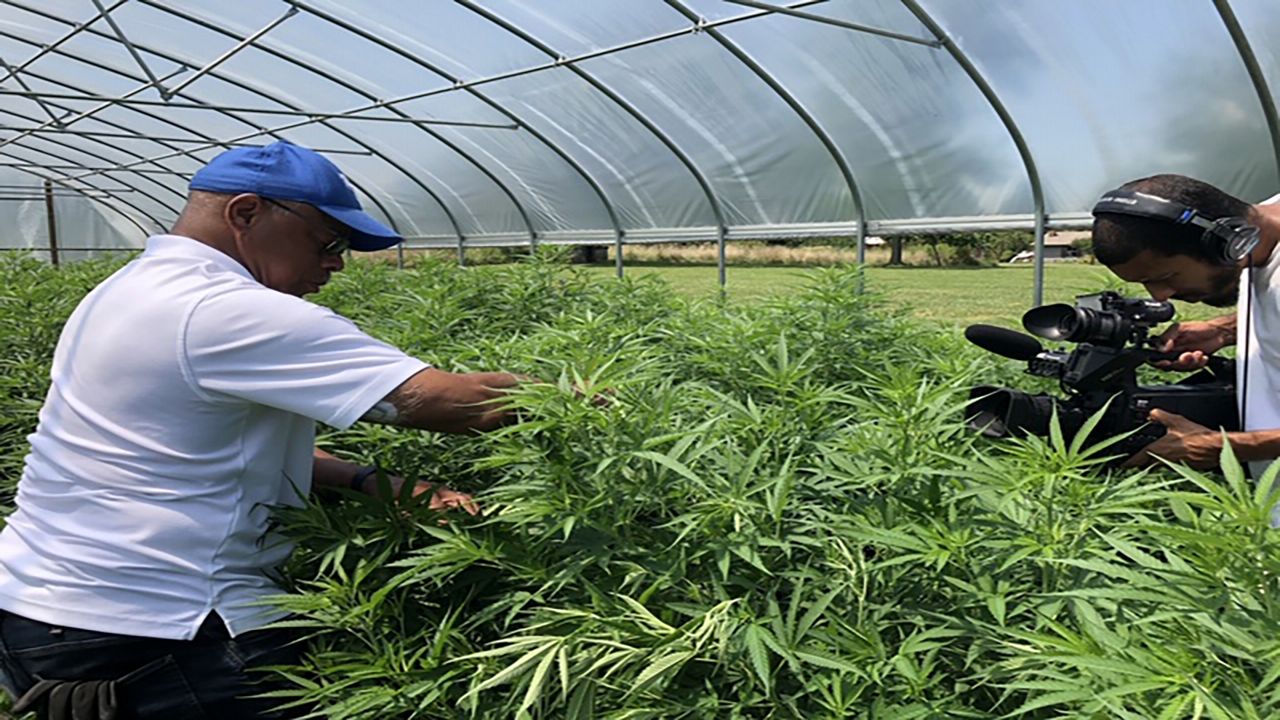LOUISVILLE, Ky. - Clinton Carter, Jr. was three-years-old when he fell off of a third-floor balcony onto a concrete patio. He hit his head and bit a hole in his cheek. His mother thought he was dead.
When Carter abruptly stopped smoking marijuana last year, he soon realized he may have been unconsciously self-medicating for nearly his entire life following a host of injuries from childhood. He says after quitting, his body felt withdrawal.
He said, "In the last six months of last year, I had seven seizures."
His longtime friend George McGill recommended CJ use a hemp-derived CBD capsule. The seizures stopped. Carter said, "I know what works for me. I know what my medicine is. I know what it’s made of. It’s third party tested and it comes from mother nature."
Together they run Comfy Hemp, an online business, selling tinctures, salves for hip and back pain and CBD protein.
"We launched Comfy Hemp specifically to market to multicultural consumers as well as veterans with an intent to provide a price point that was more conducive to our consumers' pocketbook," said McGill.
Born and raised in Louisville, McGill, a former corporate marketing executive who studied finance at the University of Kentucky, has no illusions about getting rich off of hemp. He views the company as a boutique-style operation but even with measured expectations, it was tough to launch the company. The rules for advertising and promoting CBD businesses on social media are unclear and the federal banking regulations are murky as well. The American Bankers Association says they are seeking clarity from the federal government on distinguishing between legal hemp and federally illegal marijuana, leaving many banks unwilling to work with CBD businesses. Black business owners are three times more likely to say a lack of credit is their biggest challenge, according to a 2017 report from the Association for Enterprise Opportunity. Loan denial rates for minority-owned businesses are about three times higher, at 42 percent, compared to those of non-minority-owned companies.
When asked what obstacles African-American distributors face, McGill responded, "Capital. Funding. Having the right type of capital to fund these types of operations. Unfortunately because of the wealth gap in multicultural communities, when you get a once in a lifetime opportunity like the cannabis/hemp industry if you don’t have necessarily a lot of already acquired wealth to pay for the machinery, pay for the labor. It can be a very difficult hurdle. It can be a very emotional task because you know you have a great opportunity but you know the competition, especially for myself, they have a lot more capital than me."
George and CJ are part of a larger movement of Black millennial entrepreneurs who meet in co-working spaces like this one in downtown Lexington, Kentucky. Charles Jones, who also goes by C.J., and Sasha Johnson run the online business S'Hemply Made. They work closely with Black farmers and specialize in skin care products like hemp lip balm and body butter.

Jones says, "Through history, I saw the trials and tribulations that Blacks had in relation to farming and I also thought I wanted to be involved in my community and how would I do that and it was like I know I’m not going to be a big speaker like a Malcolm X. So I was like, well OK, my other angle could be farming."
"It’s been wonderful," said Johnson. "The support that we got here locally has been amazing because we pretty much make products that are 100% natural, that are safe for people to use on their entire families and that are priced in such a way that they are accessible."

They view this work as a part of a larger mission rooted in social justice and are concerned about how the hemp felon ban impacts communities of color. According to the Farm Bill, which legalized hemp in December 2018, anyone convicted of a drug-related felony is barred from participating in its production for 10 years after their date of conviction, unless they were part of the 2014 hemp pilot program in their state.
Jones told Spectrum News 1, "I myself have had run-ins with the law in the cases of marijuana. It’s nothing that I’m ashamed because I don’t feel anything wrong right there but I know how it feels to be treated in such a way over a plant…parade me, strip search me, all that for weed."
Johnson said, "I know so many people have been criminalized due to cannabis use and I really want to see a shift. I mean I feel like I have an actual responsibility to be a part of that shift. "
The pair hope the legalization of hemp will eventually lead to the legalization of marijuana. Johnson said, " We are going to see this all the way through. It’s a long shot. We know that when those marijuana licenses roll out that there are going to be few of them granted to the state so even fewer for a person of color but we are going to be right there waiting in line."
According to the Department of Labor, the average age of an American farmer or rancher is more than 50 years old. Anecdotally, Black farmers in Kentucky believe that median age skews slightly higher among them. They hope hemp can inspire a new generation.
Lamar Wilson created Sunjoined earlier this year. It’s a fundraising network he maintains largely online made up of of farmers, distributors, and processors across the hemp industry.
"The power of all of us working together changes everything. As a collective, we can have far more acres of hemp than a Monsanto as a collective, so why not build that collective and all work together."
Hemp retail sales in the U.S. grossed an estimated 1.2 billion dollars in 2018. The software developer from Lexington is convinced hemp can trigger a redistribution of wealth in America.
"Black farmers are an endangered species right now. If we can bring value back to them by working with companies like Comfy Hemp, by working with the Shemply Made’s, they all need product," Wilson continued, "This is the one time in history that Black people that African Americans that come from America, have had access to a resource at the ground floor. That changes things. When you have access when you actually have access, that allows you to have a force multiplier on your ability to generate wealth."
Johnson says she is taking a wait and see approach, "I’m still waiting to see like everybody else. I want to see the real numbers because from what I’ve seen, it seems like people are just chugging along."








